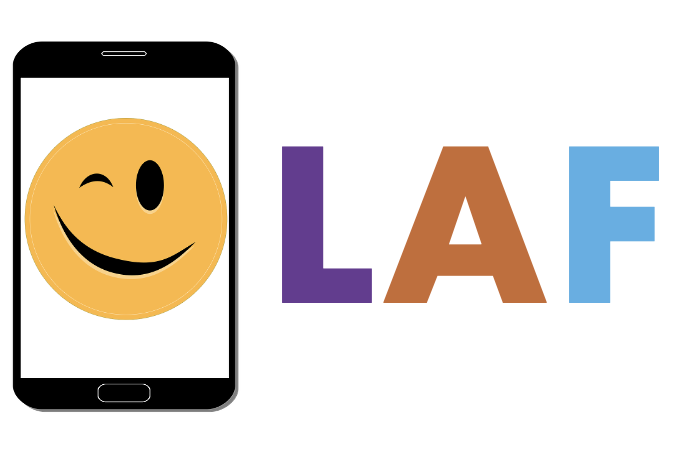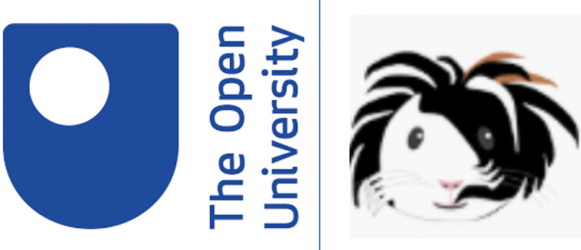OLAF- Online Learning and Fun

Principal Investigator: Dr Ale Okada (OU)
Co-Investigator: Prof Dr Kieron Sheehy (OU- WELS)
Partners: OU, PUC-SP< UA, UNED, UNESA, IC, CUBOZ
Focus countries: Portugal, Spain, Indonesia and Brazil
Funders: National Governments and Institutional funding
Period: 2020-2024
OLAF is a large-scale research project coordinated by Dr. Okada (PI) and Prof. Sheehy (Co-I) whose aim is to examine educational communities’ views about fun in learning supported by technologies in Higher Education.
Context
Due to the COVID-19 virus pandemic, many schools and universities have adapted their curriculum to promote online learning. Consequently, understanding factors that influence learners’ engagement and enjoyment with online studies has been foregrounded for many educators, and their students, for the first time. In this new context, being responsive to students’ views about their learning and fun is an important part of developing online pedagogies that might support learner well-being. (Okada, 2020).
Objectives
OLAF project has three objectives:
- to refine and localise a self-reflective instrument for generating a large database globally;
- to cocreate a set of recommendations for innovating pedagogical practices;
- to increase the number of research studies and projects about fun in learning for promoting changes in the educational curriculum, practices, and policies.
Methodology
Our approach is underpinned by Responsible Research and Innovation and open data. The RRI principles adopted to support our methodology are:
- Diversity and inclusion: the study engages distinctive societal actors: students, teaching staff, educational researchers, professionals, and local policymakers.
- Transparency and openness: objectives, methodology, database, and preliminary and final findings are open to all participants
- Anticipation and reflexivity: all participants are informed about no implications for (non) participation; open data are generated through a self-reflective instrument
- Adaptation and responsiveness: a variety of approaches are adopted and adapted to engage participants in terms of age, gender, and nationality.
A self-reflective instrument underpinned by previous studies (Sheehy et. al., 2019a; Sheehy et. al. 2019b) was designed to increase students’ awareness of their epistemic beliefs and their views about online learning and “fun”.
This self-reflective instrument was translated and adapted to various countries .
- April -Nov2020: Data Generated with OpenLearn Learners
English Questionnaire - Jun – July2020: Data Generated with Colearn Community
Portuguese Brazil Questionnaire - September-October2020: Data Generated with UA network
Portuguese Portugal Questionnaire
Our findings will be used to provide recommendations to teaching staff, curriculum designers, and project teams to support students’ enjoyment with learning enhanced by technologies. Our purpose is also to create opportunities for research groups to investigate new strategies to enrich online learning experiences in various contexts supported by innovative pedagogies, such as gamification, virtual and augmented reality, 360-annotation, story-animation, datification, inquiry mapping, and open schooling projects.
Our study was approved by The Open University’s Human Research Ethics Committee and the project approval ID is HREC/3463.
Participants:
Universities
The Open University UK
Dr Ale Okada and Prof Dr Kieron Sheehy
Study: Examining correlations between fun and online learning with epistemic beliefs.
Pontificia Universidade Católica de São Paulo, Brazil
Dr Maria Elizabeth B. de Almeida
Dr Fernando Jose Almeida
Dr Maria da Graca Moreira da Silva
Study: Developing a conceptualisation of Fun for Brazilian undergraduates and postgraduates
Universidade Aberta de Portugal & International Network
Dr Daniela Melaré Barros
Dr Marcos Ota
Dr Adriana Aparecida de Lima Terçariol
Dr Aguinaldo Robinson de Souza
Dr Cícera Aparecida Lima Malheiro
Dr Diene Eire de Mello
Dr Elisa Tomoe Moriya Schlünzen
Dr Eniel do Espírito Santo
Dr Klaus Schlünzen Junior
Dr Paula Carolei
Dr Vanessa Matos dos Santos
Dr Raquel Gomes de Oliveira
Dr Ana Paula Ambrósio Zanelato Marques
Study: Investigating the connections between personal learning and fun with Portuguese Teachers and teachers’ educators
Study: Evaluating engaging technological resources to favor the didactic communication of students and university teachers of education degrees in Spain.
Universitas Negeri Surabaya, Jawa Timur, Indonesia
Dr Sujarwanto
Study: Identifying key components to promote happiness and fun in online learning for inclusive and enjoyable Higher Education in Indonesia
CSO
Instituto Crescer
Dr Luciana Allan
Study: Exploring the relations between learning design and fun supported by technologies with school heads and teaching staff in South America
Business
Cuboz HappyMind
Dr Paola Cicarelli
Study: Analysing resources and learning activities for students to have fun and develop socio-emotional skills together to provide recommendations for technology developers in Brazil.
References: Happy Mind – Mente Feliz
Preliminary Studies shared with participants
Okada, Alexandra (2020). Distance education: do students believe it should be fun? OpenLearn Open University.
Okada, Alexandra (2020) OLAF – Gestão para Inovação Humanização e Felicidade na EAD. Jornada Virtual ABED de EAD 26 – 31 Julho
Okada, Alexandra (2020). OLAF- Online Learning and Fun to enhance enjoyment and retention in Higher Education during Covid-19 London School of Management Education.
Current studies published
Okada, Alexandra; Sheehy, Kieron (2020). The value of fun in online learning: a study supported by Responsible Research and Innovation and open data. e-Curriculum, v.18, n.2, p. 590-613.
Okada, Alexandra; Sheehy, Kieron (2020). O valor da diversão na aprendizagem on-line: um estudo apoiado na pesquisa e inovação responsáveis e dados abertos. e-Curriculum, v.18, n.2, p. 590-613.
Previous Publication
Sheehy, Kieron; Budiyanto; Kaye, Helen and Khofidotur, Rofiah (2019). Indonesian Teachers’ Epistemological Beliefs and Inclusive Education. Journal of Intellectual Disabilities, 23(1) pp. 39–56.
Sheehy, Kieron; Kasule, George Wilson and Chamberlain, Liz (2019). Ugandan Teachers Epistemological Beliefs and Child-Led Research: Implications for Developing Inclusive Educational Practice. International Journal of Disability, Development and Education. (Early Access).

